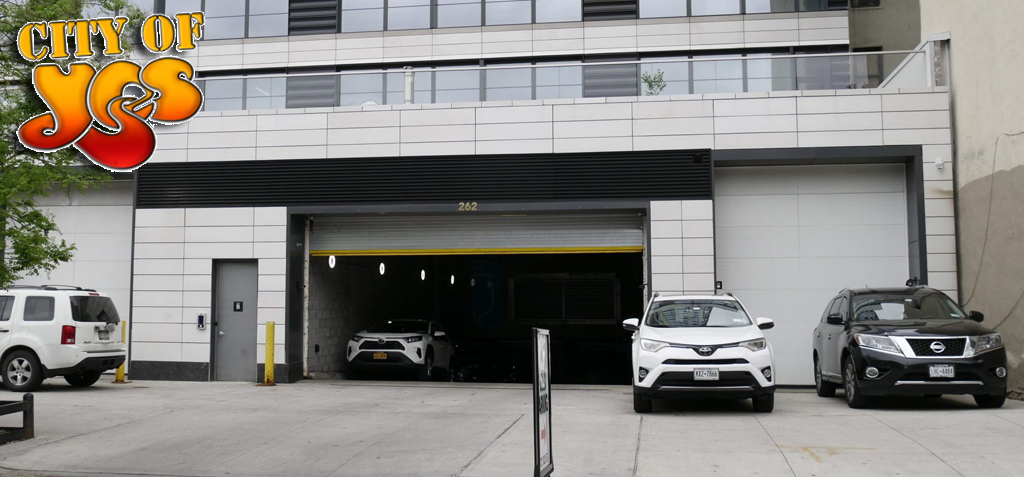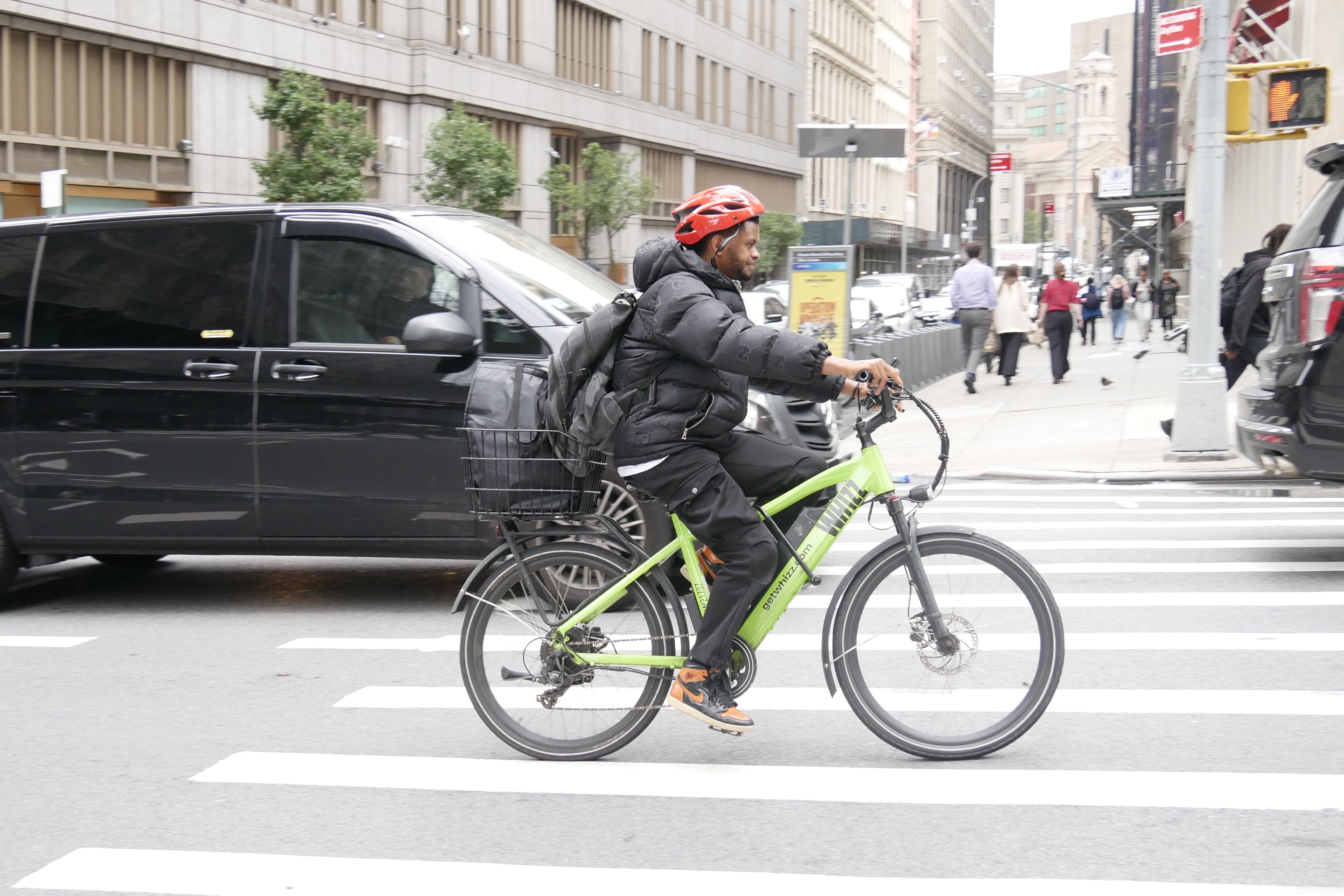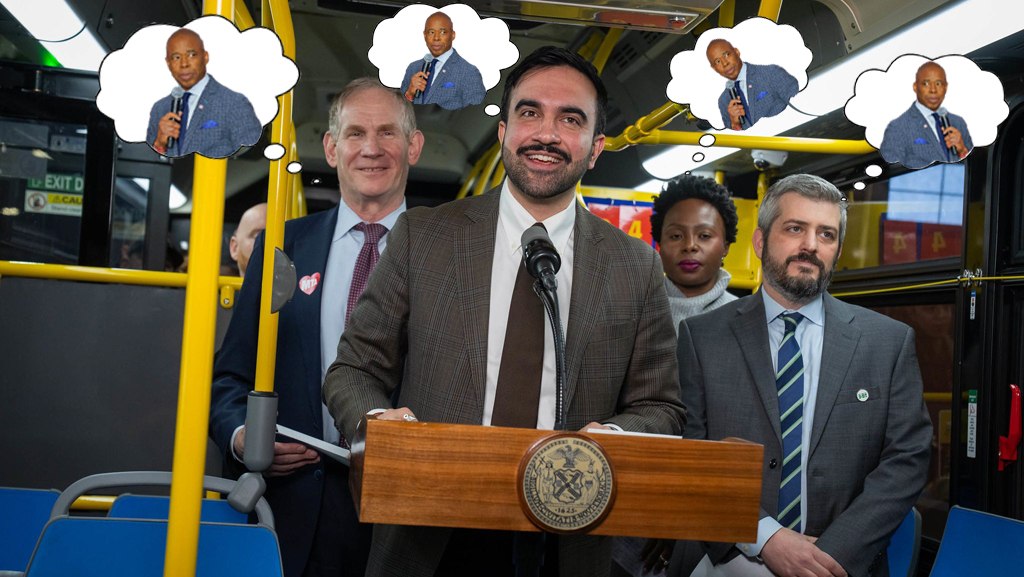The road to more housing is paved with lots of people who want parking.
The first community board to take up a crucial mayoral zoning initiative to increase the housing supply was so divisive that members were forced to table a discussion of the part of the plan that would reduce the construction of unnecessary parking.
A few days later, members of another community board, also in Brooklyn, dismissed the mayor's City of Yes for Housing Opportunity proposal out of fear that it would lead to more carmageddon, rather than, as experts say, reduce it.
Meanwhile, members of a community board in a progressive and car-light neighborhood in Manhattan cheered a central City of Yes plank: the elimination of an outdated requirement that developers install costly, off-street parking in all their new projects, even if tenants aren't demanding it.
Such have been the opening salvos as all 59 community boards begin the formal public review process for City of Yes, a process that will continue for two months before successive reviews by the city's borough presidents, the City Planning Commission and the City Council itself, a process that will continue through 2024.
The Department of City Planning, which is the lead agency for City of Yes, certainly foresaw that the elimination of parking mandates would "be among the more controversial parts,” as agency spokesman Casey Berkovitz put it.
How controversial is only now beginning to become clear.
Brooklyn Community Board 4 in Bushwick was the first group to get the agency's presentation, but the mention of parking brought the otherwise friendly meeting to a halt. Transportation and Housing committee member Ben Tocker defended getting rid of parking mandates because developers should have the flexibility to decide to build parking only if there is demand.
But he was pounced on.
“You hate cars, I get it,” said board member Deborah Hicks, via Zoom. She then expressed the fear that many residents have about newcomers: that they will show up with lots of cars and nowhere to put them, joining the fray of people competing for free parking. Supporters of City of Yes say, however, that newcomers will be less likely to buy cars in the first place if there is no parking in their buildings.
“We need housing more than we need cars,” said Tocker.
To which Hicks replied: “We need parking when we come home at one in the morning.”
Housing Committee Chair Anne Guiney shut down the parking debate with the recommendation "to kick it to the Transportation committee.”
On Tuesday, Brooklyn’s Community Board 9 held a City of Yes subcommittee meeting where they discussed their strong hatred for the plan and their belief that adding density to their district will only contribute to their problems with displacement. This board has been discussing the proposal for months, long before it was officially sent to the community boards as part of the city's lengthy Uniform Land-Use Review Procedure.
“With the removal of any parking mandates, the quality of life in our area is going to be significantly deteriorating,” board member Nichola Cox said at a previous meeting. At its April meeting, more members of the public were outraged about potential development without new parking for the newcomers.
“What’s going to happen is the people that end up living in that building, if they don't have spots [they'll] take the spots on my block,” said a member of the public, prompting applause.
Applause had rung out a few days earlier in Manhattan, but for the opposite reason — a reminder that not every community board will end up opposing the City of Yes plan, as Brooklyn CB9 did. Indeed, some members of Manhattan Community Board 4 actually erupted into cheers when the Department of City Planning discussed eliminating parking mandates.
“Bravo!” yelled Jeffrey LeFrancois, a member of the board, which comprises Chelsea and Hells Kitchen.
Parking, of course, is not the only element of City of Yes — it's primarily a zoning change designed to increase the number of units that get built. And in general, community boards that have been discussing the proposal in the first weeks are focusing on whether the plan will indeed create more affordable units. In medium- to high-density districts, City of Yes makes the inclusion of below-market-rate units merely voluntary.
But City Planning sees the elimination of parking mandates as a key incentive for developers that will end up creating more housing.
“The parking stuff is really intrinsic to a lot of what we're proposing,” said Berkovitz, “You can say, 'We're legalizing a four-story building with 25 units,' but if you're not also getting rid of the parking requirement to go along with that it isn't going to get built. If a building costs an additional $500,000 because you have to dig out underground parking, that carries over into the rent, or it means that the housing just doesn't get built at all.”
Of course, City of Yes only eliminates the parking requirement; it doesn't prevent developers from choosing to add parking if they wish. Supporters of City of Yes say that that flexibility will help create housing.
“Developers respond to the market, so if parking is needed for a project they'll still provide it. We see this happen already in many developments in the city that build more parking than required by the minimums,” said Sara Lind, co-executive director at Open Plans.






